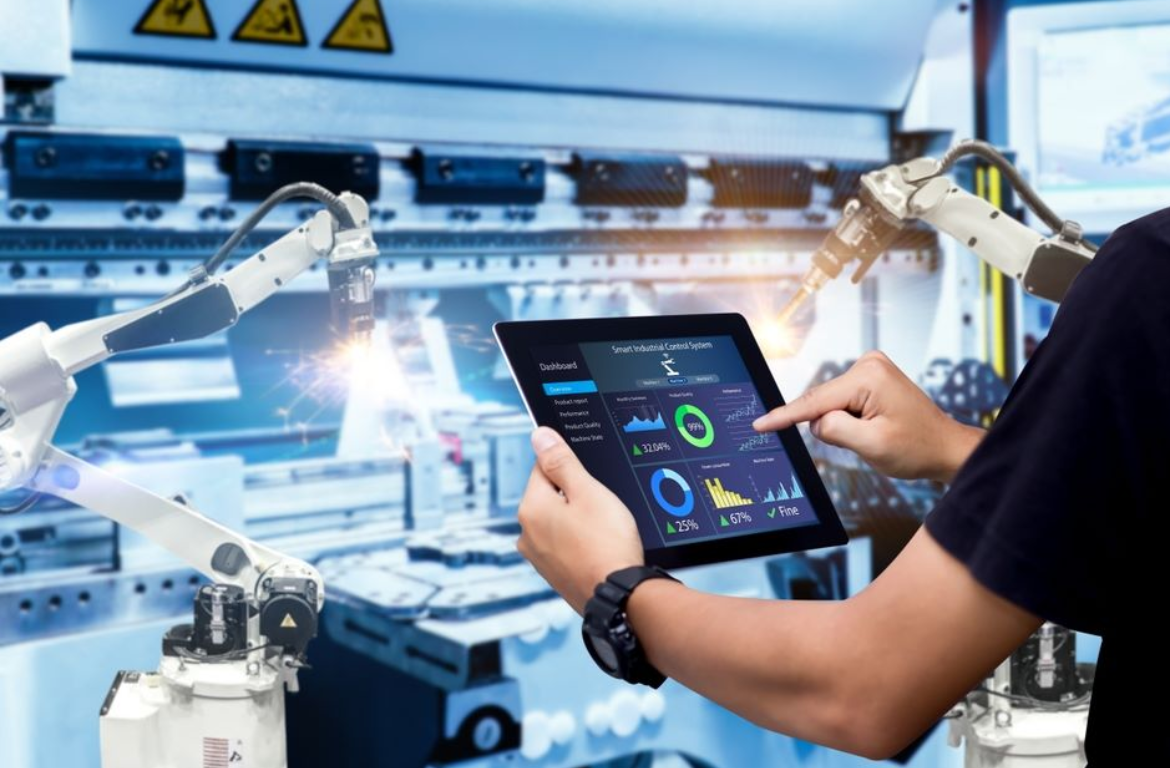In today’s fast-paced industrial landscape, the Internet of Things (IoT) is emerging as a game-changer, reshaping the way manufacturing and supply chains operate. By connecting machines, systems, and processes, IoT is driving unprecedented levels of efficiency, productivity, and innovation. Here’s how IoT is revolutionizing production and supply chain management:
Also Read: Top Tech Stack Choices for Building Scalable Web Applications
1. Enhanced Operational Efficiency
IoT devices collect real-time data from machinery and equipment, providing insights into performance and operational status. This data allows for predictive maintenance, reducing downtime and preventing costly breakdowns. Manufacturers can optimize production processes, ensuring machines run at peak efficiency.
2. Improved Quality Control
Quality control is critical in manufacturing. IoT sensors monitor production lines, detecting defects and inconsistencies in real-time. This ensures that only high-quality products reach the market, reducing waste and enhancing customer satisfaction. Automated quality checks streamline the process, saving time and resources.
3. Supply Chain Visibility
IoT provides end-to-end visibility across the supply chain. From raw material procurement to finished product delivery, IoT devices track every stage of the process. This transparency allows for better inventory management, accurate demand forecasting, and timely deliveries. Companies can respond quickly to disruptions, maintaining a smooth supply chain flow.
4. Energy Efficiency and Sustainability
Sustainability is a growing concern in manufacturing. IoT-enabled energy management systems monitor energy usage, identifying areas for improvement. By optimizing energy consumption, manufacturers can reduce their carbon footprint and operational costs. IoT also facilitates sustainable practices by enabling efficient resource management and waste reduction.
5. Enhanced Worker Safety
Worker safety is paramount in manufacturing. IoT devices can monitor hazardous conditions, such as temperature, humidity, and gas levels. Wearable IoT devices track workers’ health and safety, providing alerts in case of emergencies. This proactive approach to safety minimizes accidents and ensures a healthier work environment.
6. Data-Driven Decision Making
IoT generates vast amounts of data, which, when analyzed, provides valuable insights into manufacturing processes. Advanced analytics and machine learning algorithms can identify patterns and trends, guiding decision-making. Manufacturers can make informed choices to optimize operations, improve product quality, and reduce costs.
7. Smart Manufacturing and Industry 4.0
IoT is the backbone of smart manufacturing and Industry 4.0. By integrating IoT with other advanced technologies like artificial intelligence, robotics, and big data, manufacturers can create highly automated and intelligent production systems. This synergy drives innovation, enabling the development of new products and services.
Conclusion
The adoption of IoT in manufacturing is not just a trend; it’s a necessity for staying competitive in the modern industrial landscape. By enhancing operational efficiency, improving quality control, providing supply chain visibility, promoting sustainability, ensuring worker safety, enabling data-driven decision-making, and paving the way for smart manufacturing, IoT is revolutionizing the production and supply chain sectors. Embracing IoT can lead to significant advancements, positioning manufacturers for long-term success and growth.
Are you ready to transform your manufacturing operations with IoT? The future of production and supply chain is here, and it’s smarter, faster, and more efficient than ever before.





